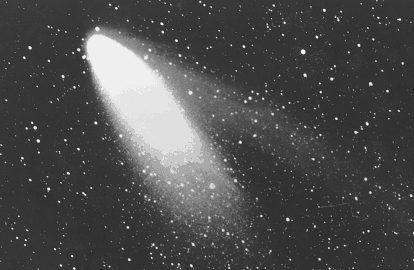“Punting the Pundits” is an Open Thread. It is a selection of editorials and opinions from around the news medium and the internet blogs. The intent is to provide a forum for your reactions and opinions, not just to the opinions presented, but to what ever you find important.
Thanks to ek hornbeck, click on the link and you can access all the past “Punting the Pundits”.
Follow us on Twitter @StarsHollowGzt
Paul Krugman: Loading the Climate Dice
A couple of weeks ago the Northeast was in the grip of a severe heat wave. As I write this, however, it’s a fairly cool day in New Jersey, considering that it’s late July. Weather is like that; it fluctuates.
And this banal observation may be what dooms us to climate catastrophe, in two ways. On one side, the variability of temperatures from day to day and year to year makes it easy to miss, ignore or obscure the longer-term upward trend. On the other, even a fairly modest rise in average temperatures translates into a much higher frequency of extreme events – like the devastating drought now gripping America’s heartland – that do vast damage.
New York Times Editorial: A Spiteful New Policy at Guantánamo Bay
The Obama administration’s latest overuse of executive authority at Guantánamo Bay is a decision not to let lawyers visit clients in detention under terms that have been in place since 2004. Because these meetings pose little risk and would send a message about America’s adherence to the rule of law, the administration looks as if it is imperiously punishing detainees for their temerity in bringing legal challenges to their detention and losing.
In one case, the administration is saying that the Yemeni national Yasin Qasem Muhammad Ismail no longer has the right to meet with his counsel, David Remes, because his plea to be released was “terminated.” The Justice Department will only let them meet, it said in an e-mail to Mr. Remes, if he signs a new memorandum giving the government what Mr. Remes calls “absolute authority over access to counsel.”
For more than a decade, deficit hawks and their allies in the media have been promoting a grand bargain whereby Republicans agree to tax hikes and Democrats agree to cut social programs like Social Security and Medicare. That, in turn, will put the deficit on a downward path and presumably restore economic growth.
The trouble with this premise is that the current deficit is mainly the result of the recession itself plus the Bush tax cuts and military spending increases. It has nothing to do with Social Security; the projected increases in Medicare spending are only the result of failure to tackle deeper health care reform.
The idea that smaller deficits will somehow increase growth (Paul Krugman’s “confidence fairy”) has the economics backwards. Deficits will fall when growth is restored, not vice versa; and fiscal contraction will reduce growth.
Jim Hightower: Let’s Consider the GOP’s Health Care Plan
Here’s some useful advice from an old country saying: Never try to teach table manners to a pig – it doesn’t work, it’ll wear you out, and it just annoys the pig.
The same advice goes for anyone who thinks they can teach even a bit of common sense to the preening political ideologues who’ve taken over the Republican Party and the U.S. House of Representatives. As we’ve seen in their incessant, pigheaded attacks on the health care reform law, their minds are not merely fogged up with extremist anti-government theories, they’re impervious to rational thought. [..]
Their greatest failure, however, is that they offer no alternative to Obamacare. During the debate on their latest attempt to repeal the law, a Democratic lawmaker asked for a copy of the GOP’s health care plan so he could read it aloud to other members. Silence in the chamber.
Bill Moyers and Michael Winship: The NRA Has America Living under the Gun
You might think Wayne LaPierre, executive vice president of and spokesman for the mighty American gun lobby, the National Rifle Association, has an almost cosmic sense of timing. In 2007, at the NRA’s annual convention in St. Louis, he warned the crowd that, “Today, there is not one firearm owner whose freedom is secure.” Two days later, a young man opened fire on the campus of Virginia Tech, killing 32 students, staff and teachers. [..]
Maybe you remember a video you can still see on YouTube. In it, Adam Gadahn, an American born member of al Qaeda, the first US citizen charged with treason since 1952, urges terrorists to carry out attacks on the United States. Right before your eyes he says, “America is absolutely awash with easily obtainable firearms. You can go down to a gun show at the local convention center and come away with a fully automatic assault rifle without a background check, and most likely, without having to show an identification card. So what are you waiting for?”
The gunman in Colorado waited only for his opportunity. So there you have it – the arsenal of democracy has been transformed into the arsenal of death. And the NRA? The NRA is the enabler of death — paranoid, delusional and as venomous as a scorpion. With the weak-kneed acquiescence of our politicians, the National Rifle Association has turned the Second Amendment of the Constitution into a cruel and deadly hoax.
Gar Alperovitz: Wall Street Is Too Big to Regulate
THE Barclays interest-rate scandal, HSBC’s openness to money laundering by Mexican drug traffickers, the epic blunders at JPMorgan Chase – at this point, four years after Wall Street wrecked the global economy, does anyone really believe we can regulate the big banks? And if we broke them up, would they really stay broken up?
Most liberals in Washington – President Obama included – keep hoping the banks can be more tightly controlled but otherwise left as is. That’s the theory behind the two-year-old Dodd-Frank law, which Republicans and Wall Street are still working to eviscerate.
Some economists in and around the University of Chicago, who founded the modern conservative tradition, had a surprisingly different take: When it comes to the really big fish in the economic pond, some felt, the only way to preserve competition was to nationalize the largest ones, which defied regulation.


 So, you’ve got Plan A. And in case something goes awry with Plan A, you’ve got your fallback plan, Plan B.
So, you’ve got Plan A. And in case something goes awry with Plan A, you’ve got your fallback plan, Plan B.
Recent Comments